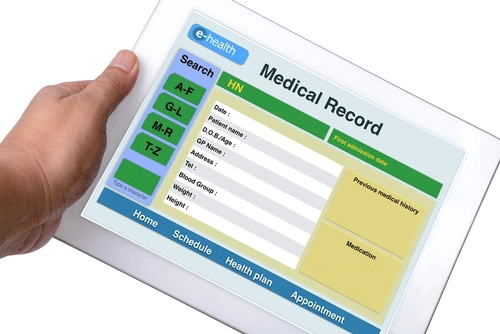EHR Incentive Payments Are Valuable--But Not This Valuable

Plus: RACs could face limits very soon.
Medical practices and facilities that used electronic health records (EHRs) anxiously awaited their incentive payments for adopting the new technology, but some hospitals collected way too much in bonus payments. That’s the word from an OIG report that shines a light on what happens when a payer miscalculates the incentive formula.
In the OIG report, “Texas Made Incorrect Medicaid Electronic Health Record Incentive Payments,” the agency says that Texas Medicaid overpaid 26 hospitals almost $14 million and underpaid another 12 facilities $1.4 million. Even worse, because the hospital calculation is computed just once and then paid over three years, the OIG projects that all future payments will be incorrect as well. After extrapolating the results out to all Texas hospitals, the OIG calculated that over $12 million was overpaid to facilities in the state.
Texas officials will soon begin recouping the $12.5 million in EHR incentive overpayments from the hospitals in question, and will refund it to the government. In addition, the state will address the technical issues that created the overpayments.
To read more about the overpayments, visit http://oig.hhs.gov/oas/reports/region6/61300047.pdf.
In other news…
CMS is reining in its Recovery Audit Contractors (RACs) somewhat, but it may not stay that way. Starting in January, CMS is establishing Additional Development Request limits for RACs based on a provider’s compliance with Medicare rules, CMS notes on its RAC web page. “Providers with low denial rates will have lower ADR limits while providers with high denial rates will have higher ADR limits,” CMS says. “The ADR limits will be adjusted as a provider’s denial rate decreases, resulting in the provider that complies with Medicare rules having less Recovery Auditor reviews.” For facility claims, RACs will be allowed to audit only 0.5 percent of all claims paid during a 45- day period, compared to the current 2 percent, according to press reports. And CMS plans to reduce the time that RACs are given to complete complex claim reviews from 60 days to 30 days. CMS isn’t changing ADR levels for physicians or DME suppliers, CMS notes.
According to the Wall Street Journal, RACs recouped $2.4 billion last year, down more than a third from the $3.7 billion recovered in 2013. Not everyone is happy about the changes.
“CMS should be stepping up a vibrant oversight presence” for Medicare, Sen. Orrin Hatch (RUtah) said in a Nov. 12 letter to Acting CMS Administrator Andy Slavitt. Hatch questioned pulling back on RAC review when recoupments are down significantly.
Resource: See the list of RAC program changes at www.cms.gov/Research-Statistics-Data-andSystems/Monitoring-Programs/Medicare-FFSCompliance-Programs/Recovery-Audit-Program/Downloads/Recovery-Audit-Program-Enhancements11-6-15-Update-.pdf.




